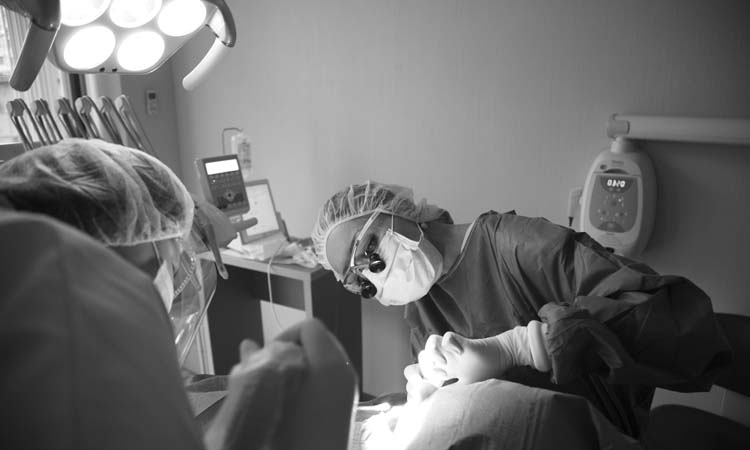- NYC UES Office
- 970 Park Avenue, Suite GFN,
New York, NY 10028
- Carnegie hill Office
- 1175 park avenue,
new york, ny 10128
TMJ Disorders
What are TMJ Disorders?
TMJ disorders (short for Temporomandibular Joint Dysfunction) refer to a collective group of ailments that cause dysfunction in the chewing system including the teeth, jaw muscles, jaw joint, and the jaw bone. This condition often results in severe pain resulting from a constricted movement of the jaw. Although the exact cause of TMJ is often unknown, the pain and constriction may be caused by arthritis or injury in some situations. The first step to treating your TMJ requires a thorough examination; including medical history, and digital x-rays. There’s no simple oral surgeon’s prescription for TMJ problems and no single cause, so the approach is as individual as you are.
What are Some of the Signs and Symptoms of TMJ Disorders?

- Chronic pain or tenderness of your jaw
- Limited ability to open your jaw (unable to open your jaw widely)
- Aching pain in and around your ear
- Difficulty chewing or discomfort while chewing
- Aching facial pain
- Muscle spasms around the jawline
- Locking of the joint, making it difficult to open or close your mouth
- A clicking or popping sound when you open your mouth widely
Head Pain, Headache Problems, Facial Pain Related to TMJ:
- Severe headaches or chronic headaches
- Forehead pain
- Severe, one sided headaches (“Cluster” headaches)
- Headaches that feel like sinus infections
- Hair and/or scalp painful or sensitive to touch.
- Headaches at the back of the head, with or without shooting pain
Ear Pain, Ear Problems Related to TMJ:
- Hissing, buzzing, ringing, or roaring sounds
- Diminished hearing
- Clogged, “stuffy”, itchy ears
- Feeling of fullness in the ear
- Ear pain without infection
- Balance problems, dizziness
What is the Treatment for TMJ?
Restoring your jaw’s alignment and reducing the pain you are experiencing from TMJ disorders may require several types of treatments to reduce muscle tension, regain a stable bite, or rest and heal your jaw joint.
TMJ treatments may range from conservative dental and medical care to more extensive procedures and surgery. Depending on the doctor’s diagnosis, your TMJ treatment may include short-term, non-steroidal anti-inflammatory drugs for pain and muscle relaxation, bite plate or splint therapy, and even stress management counseling or physical therapy.
Can BOTOX® Provide Relief for TMJ?
Sometimes, BOTOX injections are used to prevent hyperactivity of the muscles used to open and close your mouth. These BOTOX injections can provide relief of your TMJ symptoms and may be repeated as needed.
What are the Surgical Options for TMJ?
Generally, if non-surgical TMJ treatments are unsuccessful or if there is clear joint damage, surgery may be necessary. TMJ surgery can involve either arthroscopy (the method identical to the orthopaedic procedures used to inspect and treat larger joints such as the knee) or repair of damaged tissue by a direct surgical approach. For more severe cases, total joint replacement (similar to hip replacements done by orthopedic surgeons) may be indicated when there is severe damage to the bones or disc in the TMJ.